
SCARS Institute’s Encyclopedia of Scams™ Published Continuously for 25 Years

RSN™ Special Report: Revisiting Facebook Insanity – Giving African Developers Access To Your Data!
You All Remember Cambridge Analytica, Right?
What If African Scammer Cartels Had Access To All Of Your Real Information Just Like Cambridge Analytica?
They could know in detail how to use social engineering to target you based on what ads you look at, what groups you join, and friends you have! In short, they could target victims based upon every bit of data that Facebook has on you!
Do You Think This Sounds Insane?
Guess what they ARE ALREADY DOING IT!
Two Years Ago The Following Appeared In Forbes:
Meet The Man Building Facebook’s Free Basics Apps in Africa
When Facebook announced a new way to provide free information services last November, CEO Mark Zuckerberg specifically named a remarkable South African company that will help people build their own apps.
Calling it “a big day for connecting Africa,” Zuckerberg wrote in a Facebook post: “Connecting people across the African continent is critical to our mission. We’re going to keep pushing forward to develop new ways to bring people online until the whole world is connected”. Specifically, Facebook launched a service called Free Basics, which is part of its larger Internet.org initiative “to introduce people to the internet and demonstrate how it adds value to their lives”.
“We’ve also partnered with the Praekelt Foundation to give developers the tools they need to build free basic services to reach people just coming online,” Zuckerberg added. He has 42-million followers on Facebook.
The Praekelt Foundation is the non-profit arm of Praekelt Consulting, a Johannesburg company that is at the forefront of providing health services via cellphones and now smartphones. Formed in 2006, the Praekelt Foundation has provided health information and services to over 100 million people across 30 countries in Africa.
The remarkable company is the brainchild of a brilliant South African entrepreneur Gustav Praekelt, who had carved a niche in the early 2000s for developing services in the pre-app, pre-smartphone world before the iPhone ushered in large touchscreens. These so-called feature phones still predominate through Africa and Praekelt has proved adept at using the basic features and achieving noteworthy results.
The for-profit Praekelt Consulting “helps organisations leverage this mobile opportunity by building population-scale systems to help them transact in the developing world,” he says. Its clients includeBarclays , Nedbank, DStv, Telkom, Investec, Volkswagen and Guinness.
“The foundation grew out of this work when we realised there was this unbelievable opportunity to deliver life-saving services utilising the same core technology that we developed to help business grow,” says Praekelt.
“Mobiles allow us to have very large scale impact through low cost interventions. For instance, MomConnect. This is a SMS service that is the first universal free maternal health service launched in the world, where every mother and every child is being registered by the ministry of health; and being sent personalised information on their mobile phone in 11 languages throughout the pregnancy and the first year of the baby’s life”.
“It has been running for a year in South Africa and has registered over a million mothers,” adds Praekelt, who has won numerous awards for social good and tech innovation; and is a regular speaker at major conferences around the world.
Mobile health services (often called mHealth) has been a particular focus for Praekelt’s company, which now has offices in Nigeria, India and New York.
“Our first-ever service was the first HIV Aids service where patients are reminded of their ARV treatment by SMS. And it’s still running eight years later,” Praekelt says proudly. Started in 2007, it is a partnership with the Helen Joseph hospital in Johannesburg. “When I launched this I had to cold call the hospital. They thought I was a crank. I had to go there and convince them that we could use mobile phones to drive change in patient behaviour. They didn’t believe me.”
Now, apart from Facebook, the Praekelt Foundation – which has become the go-to organisation for mobile health services in Africa – works with the ministries of health in South Africa, Nigeria and Uganda: World Health Organisation, Unicef, Bill and Melinda Gates Foundation, Nike Foundation, Johnson & Johnson, and Pierre Omidyar’s foundation, the renowned Silicon Valley philanthropist and founder of eBay. Praekelt is negotiating to launch maternal health services in a further seven other countries next year.
Facebook recently announced it was launching a satellite with Eutelsat to provide internet coverage across sub-Saharan Africa from next year.
Praekelt is part brilliant entrepreneur, part philosophical do-gooder. In the best possible sense. He is a design aesthete, with a keen eye for good design. Born to German diplomat parents, he lived in Germany until he was eight and has lived in South Africa since.
A smart early-adopter of technology, he started his first company – Delapse – while still finishing his honours degree in computer science. Delapse was a pioneer in high-end motion graphics and 3D motion capture animation and helped produce ” the first animated children’s channel in Africa”.
Of working with Facebook, Praekelt says: “Free Basics will allow any social impact organisation to deliver information for free to a potential audience of 1-billion people in over 19 countries. It’s huge.”
He’s proved he has the big match temperament for the challenge.
By: Toby Shapshak, Contributor to Forbes.com
That was a lot to plow through, but the bottom line is that this is one of the thousands (tens of thousands) of African created apps that connect into the Facebook ecosystem to access user data (your data), and just like Cambridge Analytica – god only knows if anyone is aware their data is being used, how much is used, what it is used for, and much less gave their permission. Thank god that the Europeans are on top of this problem. THE U.S. CONGRESS IS TOTALLY ASLEEP!
Now Let’s Paint A Proper Nightmare Scenario
There Are Apps Created By The Major Scammer Cartels.
There actually are: https://www.appsafrica.com/social-media-2/ Just remember, the cartels are real businesses that from the outside look like normal outsourcing or media companies employing thousands of people from Liberia to Mauritius, and everywhere in between (yes dear that includes Nigeria too).
In addition, let’s assume the Cartels place moles inside Facebook’s own operations in Nigeria – how easy is it to acquire the right people, pre-train them, and then provide the kind of academic and business references to guarantee that Facebook hires them? Remember that Scamming in Nigerian is a multi-billion dollar business! It is so large that it doesn’t even care that organizations like our exists! Facebook can’t even keep their own employees from spying on their ex’s, we should assume that Facebook’s HR department in Africa is easy to game!
The African cartels are connecting into the advertising databases that Facebook holds, they don’t need your name, they only need your behaviors because this is what will tell them how likely you are to fall for the multiple types of scams they offer!
We have noticed for example, that a significant percentage of American Romance Scam Victims belong to “Buy & Sell” Facebook groups! This is exactly the kind of information that the cartels need, so they put up “honey trap” ads to appear in these groups to get you to click through to some page they have created so they can actually get your identity. They also create groups and pages themselves and victim fall for them in droves.
Once they have your identity in their lists, they hand these out to their teams to strike. They will know so much about you that you are essentially powerless to resist. This is not unusual, marketers do this billions of times a day right now. Criminal cartels eventually grow up and begin to use mainstream technologies. Just look at the marijuana industry in the U.S. – it converted in just a decade from illegal to mainstream legal! It was just marketing and proper targeting to change public and political will. We are not commenting on the correctness of that change, just the mechanism.
This Is Not Science Fiction
This Is Now
Right Now And Not Even Hard!
For Example:
Yet Another Massive Facebook Fail: Quiz App Leaked Data On ~120M Users For Years
CLICK HERE
Or Another Here:
Facebook Suspends ~200 Suspicious Apps Out Of “Thousands” Reviewed So Far [But Tens Of Thousands Still To Go] CLICK HERE
Even More Concerning Is How Facebook Shares Data With All Of Its Business Units Such As Instagram And WhatsApp!
Whatsapp To Share User Data With Facebook For Ad Targeting — Here’s How To Opt Out
Facebook-owned messaging giant WhatsApp has announced a big change to its privacy policy which, once a user accepts its new T&Cs, will see it start to share some user data with its parent company — including for ad-targeting purposes on the latter service.
“By coordinating more with Facebook, we’ll be able to do things like track basic metrics about how often people use our services and better fight spam on WhatsApp,” WhatsApp writes in a blog on the change today.
“Facebook can offer better friend suggestions and show you more relevant ads if you have an account with them. For example, you might see an ad from a company you already work with, rather than one from someone you’ve never heard of.”
WhatsApp will also be sharing the data with the “Facebook family of companies” — so presumably its user data could also be fed to VR firm Oculus Rift, another Fb acquisition, and photo-sharing network Instagram.
WhatsApp data that will be shared under the new T&Cs includes the phone number a user used to verify their account, and the last time they used the service.
Two pieces of data which — on a creepiness scale of ‘personal intel you’d rather not hand over to a data-mining tech giant’ — are both right up there.
You Can Read The Full Whatsapp Privacy Policy Here.
There is an option to opt out of some of the data sharing (specifically for ad and product purposes) — see lower down this post for more details — although most users will just tap ‘I agree’ to WhatsApp’s new T&Cs without reading them and realizing what they are agreeing to.
This is why, as we’ve said before, T&Cs suck. And why user consent to a massive privacy shift like this should certainly not default opt people in.
Privacy Vs Data
This is undoubtedly a huge step-change for a service that has typically prided itself on championing user privacy, including completing a rollout of end-to-end encryption across its entire service earlier this year, and continuing to fight requests from authorities to hand over user data.
But once WhatsApp agreed to be acquired by data-mining social network giant Facebook, back in February 2014, the writing was arguably on the wall for any pro-privacy stance.
Facebook is in the business of monetizing usage via interest-based advertising fed by harvesting the personal data of its users. WhatsApp’s original business model, of charging users a small yearly subscription fee for an ad-free messaging service, was discontinued after Facebook took over ownership of the service.
The annual $1 fee was ditched in January this year, but WhatsApp still does not have a replacement business model — given its anti-ads stance, although it is laying the groundwork to open up business accounts. And the intel it will be sharing with Facebook under its new T&Cs will likely be used to further its plans there.
At the time of the acquisition Facebook said it would be keeping the messaging giant independent, despite some obvious overlap with its own Facebook Messenger app.
While WhatsApp founder Jan Koum claimed there would be no changes. “Here’s what will change for you, our users: nothing. WhatsApp will remain autonomous and operate independently,” he wrote at the time, adding: “There would have been no partnership between our two companies if we had to compromise on the core principles that will always define our company, our vision and our product.”
Fast forward a couple of years and one core principle — privacy — is now being, if not entirely compromised, at least loosened — given that Facebook will now be able to link users of its own social services with WhatsApp users. It will also be able to track relative usage of its services vs activity on the messaging app, as WhatsApp feeds it engagement intel via the ‘last used’ signal.
It’s not clear from the WhatsApp blog post if other user data will be shared with Facebook. The wording suggests this is entirely possible, although if a user has updated to the latest version of the app, which end-to-end encrypts all content, then their messaging content at least cannot be shared, so long as the person they are messaging has also updated.
WhatsApp also makes this point in its blog post, noting: “When your messages are end-to-end encrypted, only the people you are messaging with can read them — not WhatsApp, Facebook, or anyone else.”
But that’s kind of missing the point about letting Facebook triangulate users across two massive services, with over a billion active users apiece. It remains to be seen whether that collapsing of boundaries between two distinct services will catch the attention of data protection regulators in Europe, which has more stringent privacy rules, and where Facebook has already faced multiple data protection related investigations and legal actions — and continues to do so.
We’ve asked WhatsApp for a comprehensive list of everything it intends to share with Facebook, and for a comprehensive list of everything Facebook intends to do with the data it will be receiving on WhatsApp users and their usage of the service — and will update this post with any response.
As well as phone number and last seen data, TechCrunch understands Facebook will also be fed intel on a WhatApp user’s operating system, mobile country code, mobile carrier code, screen resolution and device identifier. All of which open up plentiful tracking/ad-targeting possibilities.
But this looks very much like Facebook trying to ‘fill in’ missing mobile phone number data via the more comprehensive WhatsApp address book — given that the latter requires users to supply a number to verify an account, whereas it is possible to use Facebook without supplying your mobile number (albeit, Facebook might well have grabbed your digits via your friends uploading their contacts’ books to the service anyway… And the service periodically nags those who haven’t to add a mobile number…).
WhatsApp says the data is being shared to “coordinate more and improve experiences across our services and those of Facebook and the Facebook family” — going on to cite the following three specific examples:
- We will be able to more accurately count unique users
- We can better fight spam and abuse
If you are a Facebook user, you might see better friend suggestions and more relevant ads on Facebook
In WhatsApp’s privacy policy it fleshes this out a little more, including noting potential marketing and ad-targeting use-cases for sharing its user data with Facebook — writing (emphasis mine):
We [WhatsApp] joined the Facebook family of companies in 2014. As part of the Facebook family of companies, WhatsApp receives information from, and shares information with, this family of companies. We may use the information we receive from them, and they may use the information we share with them, to help operate, provide, improve, understand, customize, support, and market our Services and their offerings. This includes helping improve infrastructure and delivery systems, understanding how our Services or theirs are used, securing systems, and fighting spam, abuse, or infringement activities. Facebook and the other companies in the Facebook family also may use information from us to improve your experiences within their services such as making product suggestions (for example, of friends or connections, or of interesting content) and showing relevant offers and ads. However, your WhatsApp messages will not be shared onto Facebook for others to see. In fact, Facebook will not use your WhatsApp messages for any purpose other than to assist us in operating and providing our Services.
One such marketing use-case for Facebook to make use of the WhatsApp phone number data is for its Custom Audiences ad offering, whereby businesses using its platform can target ads based on an existing customer contact list they have.
So any WhatsApp users that have given a business the same mobile phone number they use for the app can be served targeted ads by that same business via Facebook.
While a Facebook product use-case for the phone number data is to expand the friend recommendations it can send — by it being able to identify more networks of friends, based on linking more people to mobile numbers.
Partial opt-out
Opting out of the data-sharing entirely does not seem to be possible, but WhatsApp is offering a partial opt out — specifically for Facebook ad targeting and product-related purposes.
However it notes that data will still be shared “for other purposes such as improving infrastructure and delivery systems, understanding how our services or theirs are used, securing systems, and fighting spam, abuse, or infringement activities”.
So There Is No Way To Totally Opt Out, Short Of Short Of Stopping Using Whatsapp.
A WhatsApp spokesperson declined to comment on why it is not offering users a complete opt out of data-sharing with Facebook, but in a statement the spokesperson said: “We understand people with WhatsApp accounts might want to opt out of sharing their account information to improve their Facebook experiences. They have an additional 30 days to opt out after accepting the new terms so they have time to consider their choices.”
How to opt out of sharing data for Facebook ad targeting
WhatsApp details two ways to opt out of sharing data for Facebook ad targeting on its blog here.
Firstly if you haven’t already agreed to the new T&Cs you can opt out before agreeing to the new terms by tapping to read the full terms of service and privacy policy — and scrolling to a control at the bottom of the document — where there’s a check-box option for sharing the data which you then untick before hitting agree…
If you’ve already accepted the new T&Cs without unchecking the box to share your information with Facebook WhatsApp is also offering a thirty-day window to make the same choice — via the settings page in the app.
To exercise your opt out in this scenario you need to go to Settings > Account > Share my account infoin the app and uncheck the box/toggle the control displayed there. And do so within the thirty-day window. Presumably, after that, even this partial opt out will expire.
So What Do We Do About This?
It Starts With You! Yes, You!
Each of us has allowed this to happen, but it is not too late.
We have in the White House an Administration that is sensitive to the issue of scams. They have been scammed, and in the opinion of many, are still being scammed. Remember that it was the previous Administration that ignored the problem completely and allowed African Scammer Cartels to grow out of all control. The current Administration has enacted several new laws and Executive Orders that directly impact scamming. The number of arrests has exploded from 400 total arrests under the Obama Administration’s 8 years, to more than 6,000 just this year alone! Who would you say is taking it seriously? Left or right?
We Need To Force Congress And The Rest Of The Administration To Get Far More Serious About This
This is going to require political advocacy and especially voting the right way in this election. If the power in Congress shifts we will have lost the opportunity. Why? Because a Democratic Party Congress will be so totally focused on resisting the Trump Administration that nothing will get done! We hope you can see that! It is not about parties, it is about pragmatic accomplishments. We need a Congress focused on progress and law-making, not impeachment. IF CONGRESS FLIPS, WE WILL LOSE TWO MORE YEARS WITH NOTHING TO SHOW FOR IT.
We hope you understand what is at stake here. This is not about one man, it is about the technology that now controls the majority of our lives, and in the future even more, unless we re-balance it immediately. THIS ADMINISTRATION IS WILLING TO TAKE THAT ON – BUT IT CAN’T DO IT WITHOUT CONGRESS.
Facebook is just the most obvious example of the iceberg we are sailing towards, but there are millions of others just below the surface that we cannot yet see – until it is too late.
If you truly care about constraining these nightmares, you can do something about it by voting in two months, or you can continue to allow Tech Giants to ignore our best interests and use us as guinea pigs in a giant social engineering experiment where we all lose!
What Do You Want?
-/ 30 /-
What do you think about this?
Please share your thoughts in a comment below!
Table of Contents
- You All Remember Cambridge Analytica, Right?
- What If African Scammer Cartels Had Access To All Of Your Real Information Just Like Cambridge Analytica?
- Guess what they ARE ALREADY DOING IT!
- Now Let’s Paint A Proper Nightmare Scenario
- This Is Not Science Fiction
This Is Now
Right Now And Not Even Hard! - So What Do We Do About This?
- We Need To Force Congress And The Rest Of The Administration To Get Far More Serious About This
- What Do You Want?
LEAVE A COMMENT?
Thank you for your comment. You may receive an email to follow up. We never share your data with marketers.
Recent Comments
On Other Articles
- on Finally Tax Relief for American Scam Victims is on the Horizon – 2026: “I just did my taxes for 2025 my tax account said so far for romances scam we cd not take…” Feb 25, 19:50
- on Reporting Scams & Interacting With The Police – A Scam Victim’s Checklist [VIDEO]: “Yes, this is a scam. For your own sanity, just block them completely.” Feb 25, 15:37
- on Danielle Delaunay/Danielle Genevieve – Stolen Identity/Stolen Photos – Impersonation Victim UPDATED 2024: “She goes by the name of Sanrda John now” Feb 25, 10:26
- on Reporting Scams & Interacting With The Police – A Scam Victim’s Checklist [VIDEO]: “So far I have not been scam out of any money because I was aware not to give the money…” Feb 25, 07:46
- on Love Bombing And How Romance Scam Victims Are Forced To Feel: “I was love bombed to the point that I would do just about anything for the scammer(s). I was told…” Feb 11, 14:24
- on Dani Daniels (Kira Lee Orsag): Another Scammer’s Favorite: “You provide a valuable service! I wish more people knew about it!” Feb 10, 15:05
- on Danielle Delaunay/Danielle Genevieve – Stolen Identity/Stolen Photos – Impersonation Victim UPDATED 2024: “We highly recommend that you simply turn away form the scam and scammers, and focus on the development of a…” Feb 4, 19:47
- on The Art Of Deception: The Fundamental Principals Of Successful Deceptions – 2024: “I experienced many of the deceptive tactics that romance scammers use. I was told various stories of hardship and why…” Feb 4, 15:27
- on Danielle Delaunay/Danielle Genevieve – Stolen Identity/Stolen Photos – Impersonation Victim UPDATED 2024: “Yes, I’m in that exact situation also. “Danielle” has seriously scammed me for 3 years now. “She” (he) doesn’t know…” Feb 4, 14:58
- on An Essay on Justice and Money Recovery – 2026: “you are so right I accidentally clicked on online justice I signed an agreement for 12k upfront but cd only…” Feb 3, 08:16
ARTICLE META
Important Information for New Scam Victims
- Please visit www.ScamVictimsSupport.org – a SCARS Website for New Scam Victims & Sextortion Victims
- Enroll in FREE SCARS Scam Survivor’s School now at www.SCARSeducation.org
- Please visit www.ScamPsychology.org – to more fully understand the psychological concepts involved in scams and scam victim recovery
If you are looking for local trauma counselors please visit counseling.AgainstScams.org or join SCARS for our counseling/therapy benefit: membership.AgainstScams.org
If you need to speak with someone now, you can dial 988 or find phone numbers for crisis hotlines all around the world here: www.opencounseling.com/suicide-hotlines
A Note About Labeling!
We often use the term ‘scam victim’ in our articles, but this is a convenience to help those searching for information in search engines like Google. It is just a convenience and has no deeper meaning. If you have come through such an experience, YOU are a Survivor! It was not your fault. You are not alone! Axios!
A Question of Trust
At the SCARS Institute, we invite you to do your own research on the topics we speak about and publish, Our team investigates the subject being discussed, especially when it comes to understanding the scam victims-survivors experience. You can do Google searches but in many cases, you will have to wade through scientific papers and studies. However, remember that biases and perspectives matter and influence the outcome. Regardless, we encourage you to explore these topics as thoroughly as you can for your own awareness.
Statement About Victim Blaming
SCARS Institute articles examine different aspects of the scam victim experience, as well as those who may have been secondary victims. This work focuses on understanding victimization through the science of victimology, including common psychological and behavioral responses. The purpose is to help victims and survivors understand why these crimes occurred, reduce shame and self-blame, strengthen recovery programs and victim opportunities, and lower the risk of future victimization.
At times, these discussions may sound uncomfortable, overwhelming, or may be mistaken for blame. They are not. Scam victims are never blamed. Our goal is to explain the mechanisms of deception and the human responses that scammers exploit, and the processes that occur after the scam ends, so victims can better understand what happened to them and why it felt convincing at the time, and what the path looks like going forward.
Articles that address the psychology, neurology, physiology, and other characteristics of scams and the victim experience recognize that all people share cognitive and emotional traits that can be manipulated under the right conditions. These characteristics are not flaws. They are normal human functions that criminals deliberately exploit. Victims typically have little awareness of these mechanisms while a scam is unfolding and a very limited ability to control them. Awareness often comes only after the harm has occurred.
By explaining these processes, these articles help victims make sense of their experiences, understand common post-scam reactions, and identify ways to protect themselves moving forward. This knowledge supports recovery by replacing confusion and self-blame with clarity, context, and self-compassion.
Additional educational material on these topics is available at ScamPsychology.org – ScamsNOW.com and other SCARS Institute websites.
Psychology Disclaimer:
All articles about psychology and the human brain on this website are for information & education only
The information provided in this article is intended for educational and self-help purposes only and should not be construed as a substitute for professional therapy or counseling.
While any self-help techniques outlined herein may be beneficial for scam victims seeking to recover from their experience and move towards recovery, it is important to consult with a qualified mental health professional before initiating any course of action. Each individual’s experience and needs are unique, and what works for one person may not be suitable for another.
Additionally, any approach may not be appropriate for individuals with certain pre-existing mental health conditions or trauma histories. It is advisable to seek guidance from a licensed therapist or counselor who can provide personalized support, guidance, and treatment tailored to your specific needs.
If you are experiencing significant distress or emotional difficulties related to a scam or other traumatic event, please consult your doctor or mental health provider for appropriate care and support.
Also read our SCARS Institute Statement about Professional Care for Scam Victims – click here to go to our ScamsNOW.com website.


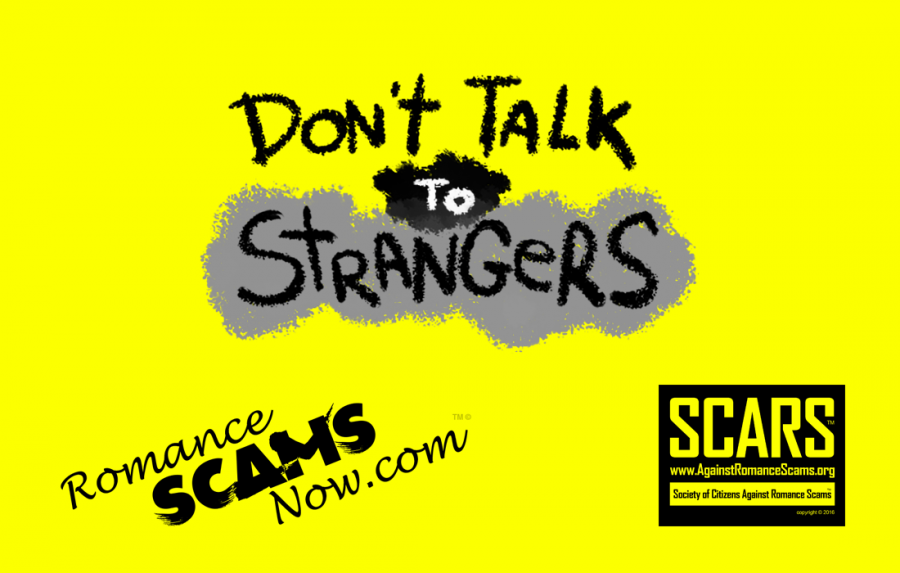

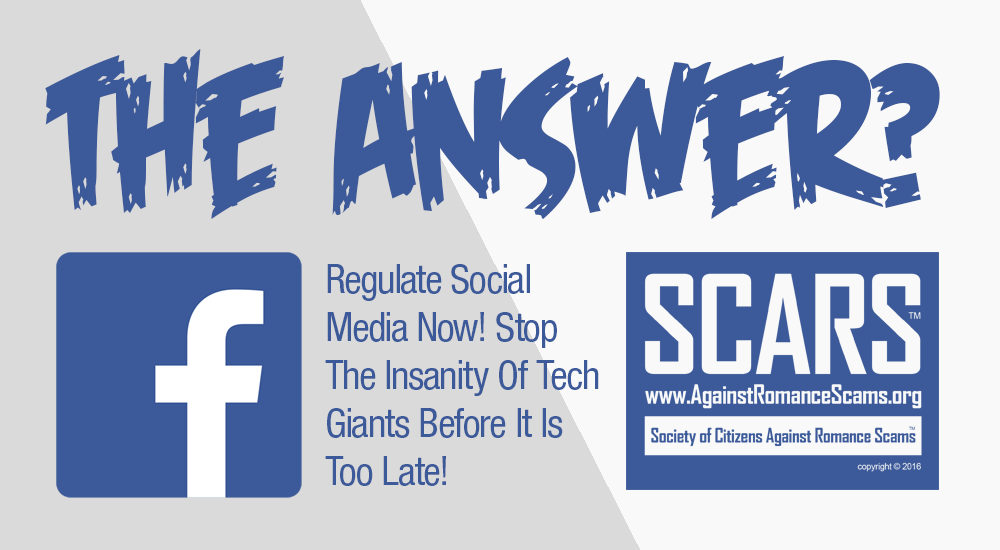




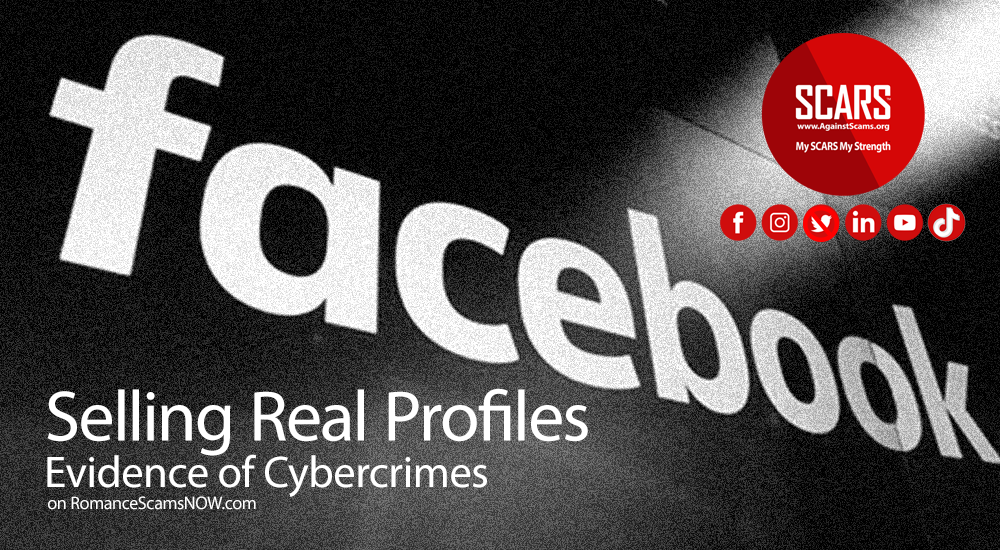
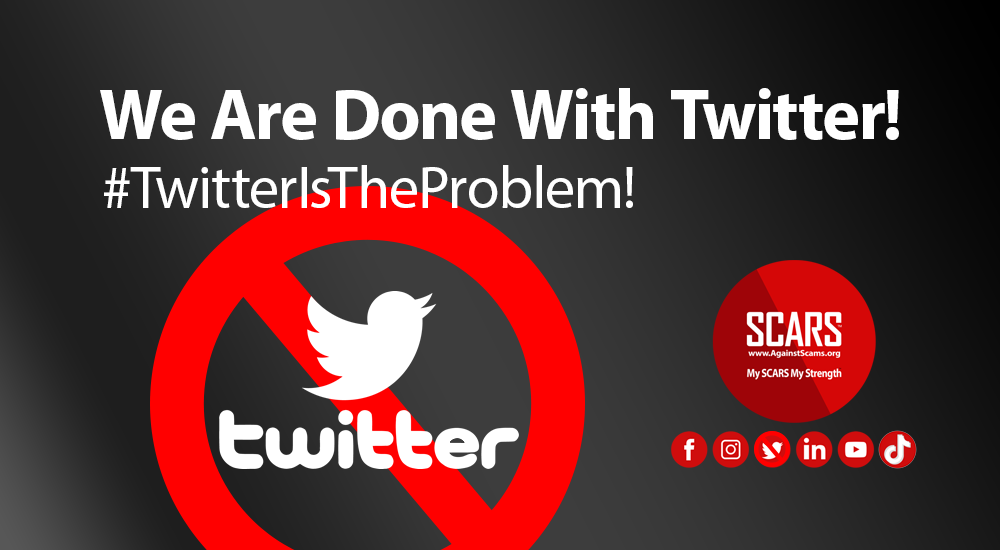
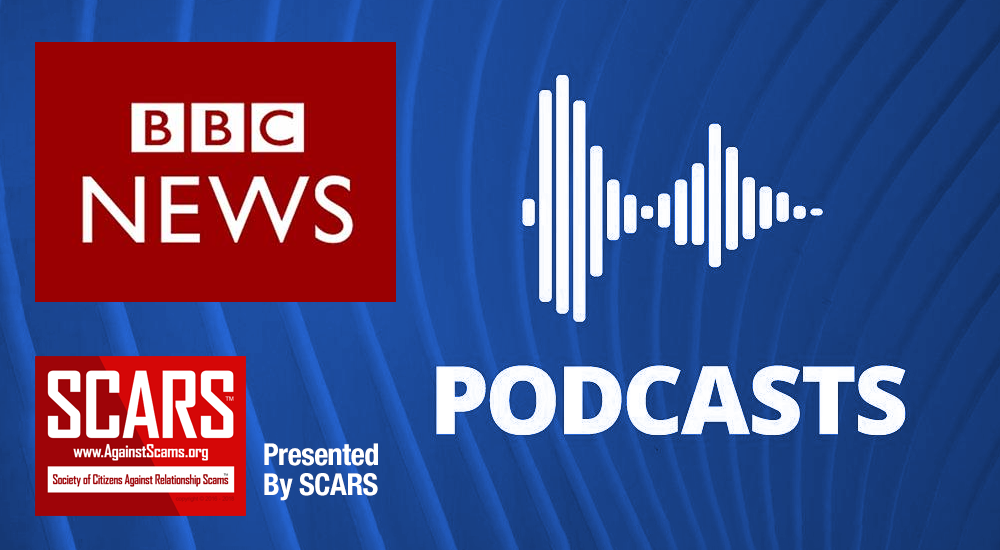
![SCARS™ Insight: Facebook 1 Billion Fake Profiles [Infographic] the world of facebook users 2019 1 the-world-of-facebook-users-2019 interface banner](https://romancescamsnow.com/wp-content/uploads/2019/02/the-world-of-facebook-users-2019-1.png)




Facebook is NOT SAFE, Messenger is what I got caught in last time. Free FEDERAL GRANT MONEY-US GOVERNMENT/UN FUNDS! Is there a way to get Compensation?
Here is our RSN™ Guide to Financial Compensation: https://romancescamsnow.com/dating-scams/rsn-guide-financial-assistance-crime-victim-compensation/